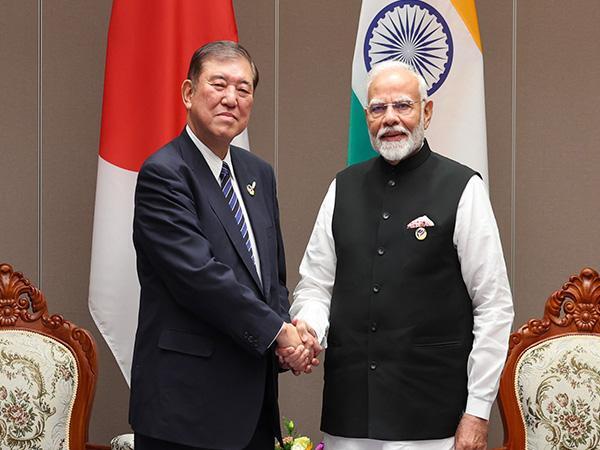
Our Technology & India’s Talent Complement Each Other: Japan PM
In a significant statement that highlights the growing economic ties between India and Japan, Japan’s Prime Minister Shigeru Ishiba recently emphasized that Japan’s advanced technology and India’s outstanding talent complement each other perfectly, leading to a dramatic expansion of their bilateral economic relations.
Ishiba made these remarks while addressing the India-Japan Joint Economic Forum in the presence of Indian Prime Minister Narendra Modi. The forum is a platform that brings together business leaders, policymakers, and industry experts to discuss ways to strengthen economic cooperation between the two countries.
The Japanese Prime Minister’s statement is significant because it underscores the complementarity of Japan’s technology and India’s talent pool. For years, India has been working to become a global manufacturing hub, and Japan’s advanced technology has been instrumental in helping India achieve this goal.
Many Japanese companies are already playing a key role in India’s ‘Make in India’ initiative, which aims to promote domestic manufacturing and reduce the country’s dependence on foreign goods. Ishiba mentioned that Japanese companies are working together with Indian partners on the construction of the Mumbai-Ahmedabad High Speed Rail project, which is one of the most ambitious infrastructure projects in India.
The Mumbai-Ahmedabad High Speed Rail project is a prime example of how Japan’s technology and India’s talent are coming together to achieve a common goal. The project involves the construction of a high-speed rail network that will connect India’s financial capital Mumbai with its commercial capital Ahmedabad. The project is expected to not only reduce travel time between the two cities but also boost economic growth in the region.
India and Japan have a long history of cooperation in the field of technology. Over the years, Japan has been a significant source of foreign direct investment in India, and many Japanese companies have established a presence in the country. India, on the other hand, has been a key destination for Japanese companies looking to expand their presence in Asia.
In recent years, the relationship between India and Japan has undergone a significant transformation. The two countries have been working together to strengthen their economic ties, and there are several initiatives that have been launched to promote bilateral trade and investment.
One of the most significant initiatives is the Japan-India Economic Partnership Agreement (EPA), which was signed in 2011. The EPA aims to promote bilateral trade and investment by reducing tariffs and other trade barriers. The agreement has helped to increase bilateral trade between the two countries, and India has become one of Japan’s largest trading partners in Asia.
Another significant initiative is the India-Japan Investment Promotion Partnership, which was launched in 2015. The partnership aims to promote investment between the two countries by providing a platform for Indian and Japanese businesses to interact and collaborate. The partnership has helped to increase Japanese investment in India, and many Japanese companies have established a presence in the country.
In recent years, India has made significant progress in terms of economic growth and development. The country has emerged as one of the fastest-growing major economies in the world, and its growth story has been driven by a combination of factors, including a large and young population, a growing middle class, and a business-friendly environment.
Japan, on the other hand, has been facing challenges in terms of its economic growth. The country has been experiencing a prolonged period of economic stagnation, and its population is aging rapidly. However, Japan is still one of the world’s leading economies, and it has a highly developed infrastructure and a highly skilled workforce.
In this context, the partnership between India and Japan is significant because it offers a win-win opportunity for both countries. India can benefit from Japan’s advanced technology and expertise, while Japan can benefit from India’s large and young population, as well as its growing middle class.
In conclusion, Japan’s Prime Minister Shigeru Ishiba’s statement that Japan’s technology and India’s talent complement each other is significant because it highlights the growing economic ties between the two countries. The partnership between India and Japan is expected to continue to grow in the coming years, and there are several initiatives that are being launched to promote bilateral trade and investment.
As India continues to emerge as a global manufacturing hub, Japan’s technology will play a key role in helping the country achieve its goal. Similarly, India’s talent pool will be instrumental in helping Japan to address its demographic challenges and to promote economic growth.
The Mumbai-Ahmedabad High Speed Rail project is just one example of how Japan’s technology and India’s talent are coming together to achieve a common goal. The project is expected to not only reduce travel time between the two cities but also boost economic growth in the region.
As the partnership between India and Japan continues to grow, it is expected to have a significant impact on the global economy. The partnership will not only promote economic growth and development in both countries but also contribute to global economic stability.
News Source:
https://x.com/ANI/status/1961302477053333771



